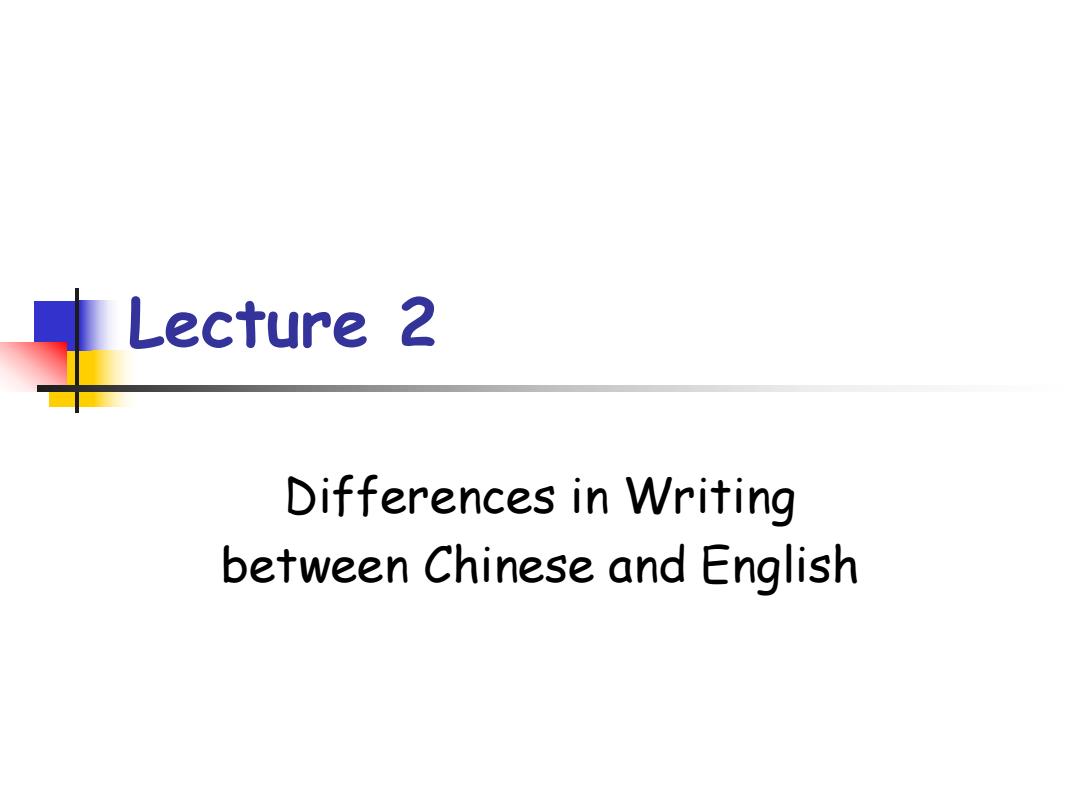
Lecture 2 Differences in Writing between Chinese and English
Lecture 2 Differences in Writing between Chinese and English
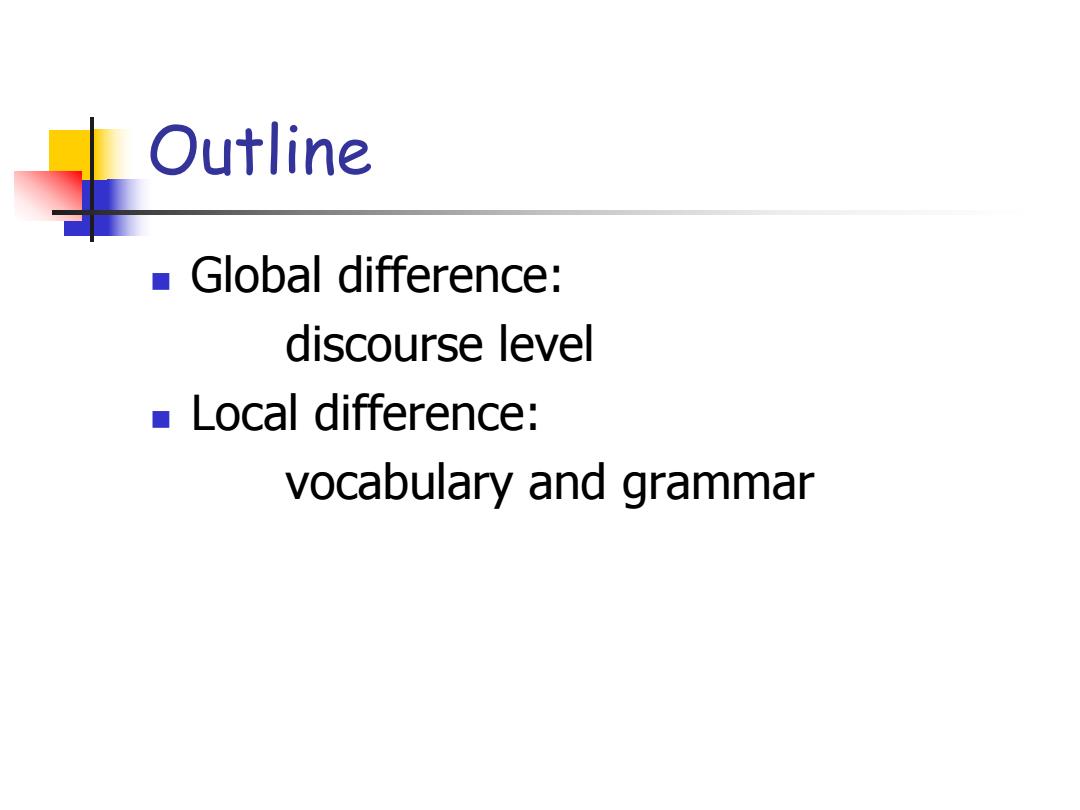
Outline Global difference: discourse level Local difference: vocabulary and grammar
Outline n Global difference: discourse level n Local difference: vocabulary and grammar
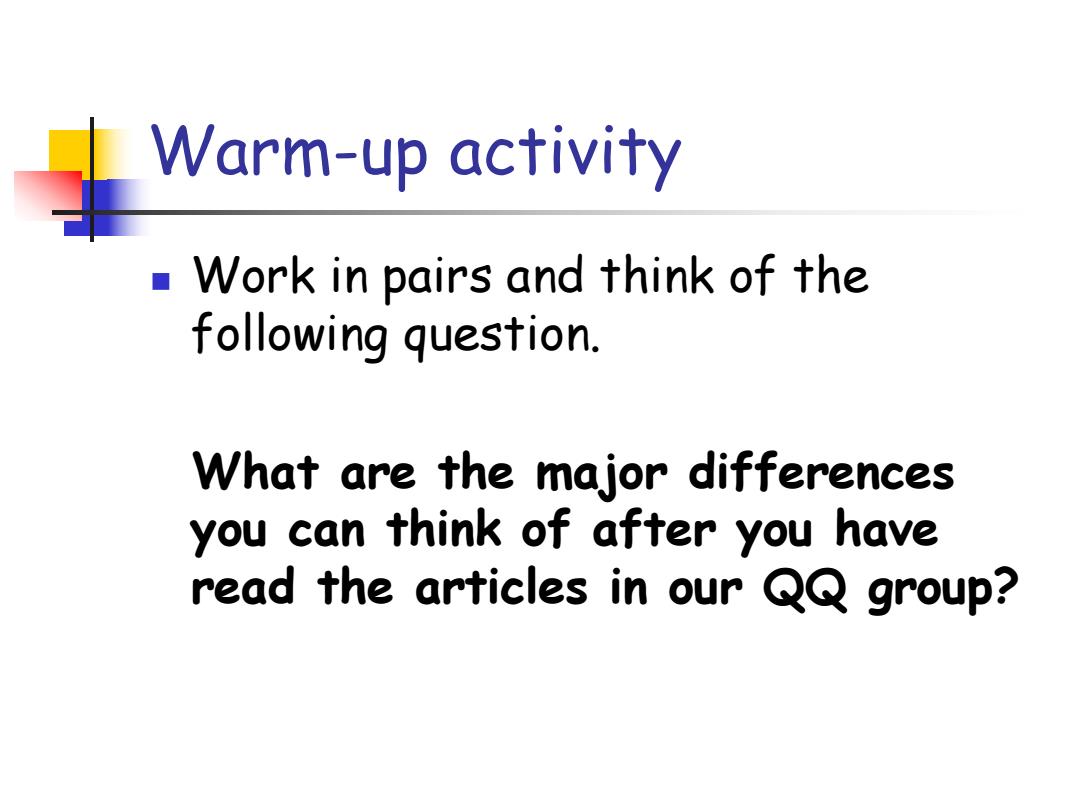
Warm-up activity Work in pairs and think of the following question. What are the major differences you can think of after you have read the articles in our QQ group?
Warm-up activity n Work in pairs and think of the following question. What are the major differences you can think of after you have read the articles in our QQ group?
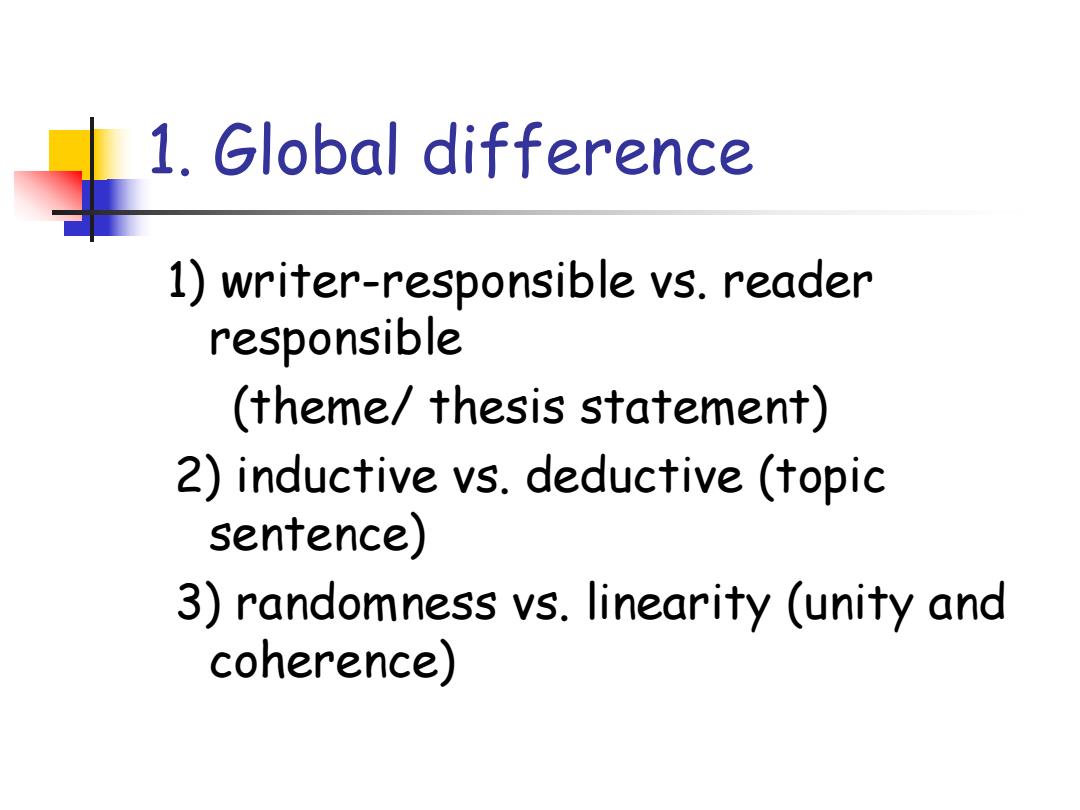
1.Global difference 1)writer-responsible vs.reader responsible (theme/thesis statement) 2)inductive vs.deductive (topic sentence) 3)randomness vs.linearity (unity and coherence)
1. Global difference 1) writer-responsible vs. reader responsible (theme/ thesis statement) 2) inductive vs. deductive (topic sentence) 3) randomness vs. linearity (unity and coherence)
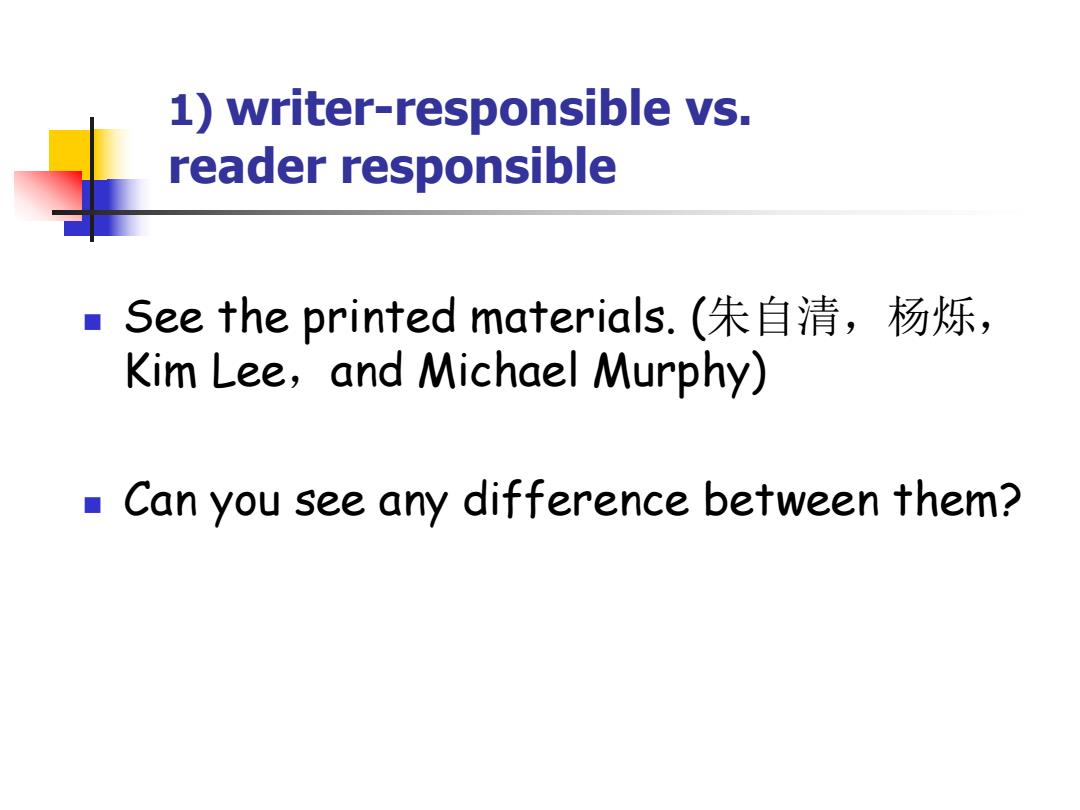
1)writer-responsible vs. reader responsible ■ See the printed materials.(朱自清,杨烁, Kim Lee,and Michael Murphy) Can you see any difference between them?
1) writer-responsible vs. reader responsible n See the printed materials. (朱自清,杨烁, Kim Lee,and Michael Murphy) n Can you see any difference between them?
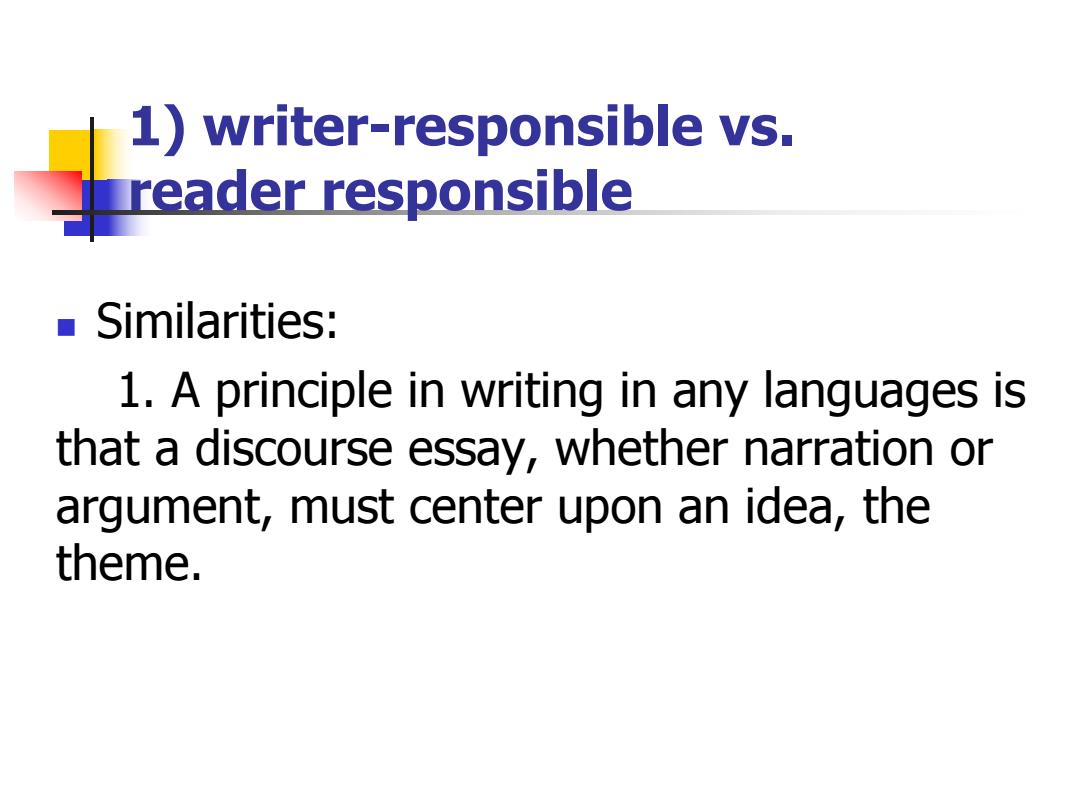
1)writer-responsible vs. reader responsible Similarities: 1.A principle in writing in any languages is that a discourse essay,whether narration or argument,must center upon an idea,the theme
1) writer-responsible vs. reader responsible n Similarities: 1. A principle in writing in any languages is that a discourse essay, whether narration or argument, must center upon an idea, the theme
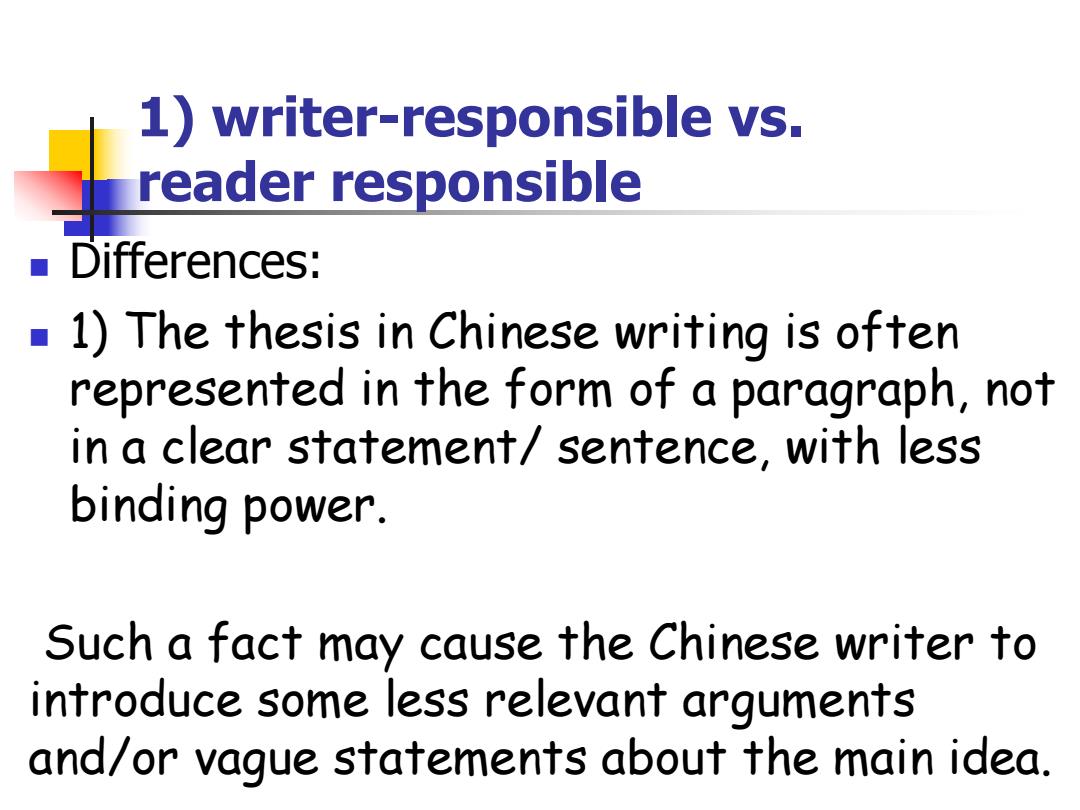
1)writer-responsible vs. reader responsible Differences: 1)The thesis in Chinese writing is often represented in the form of a paragraph,not in a clear statement/sentence,with less binding power. Such a fact may cause the Chinese writer to introduce some less relevant arguments and/or vague statements about the main idea
1) writer-responsible vs. reader responsible n Differences: n 1) The thesis in Chinese writing is often represented in the form of a paragraph, not in a clear statement/ sentence, with less binding power. Such a fact may cause the Chinese writer to introduce some less relevant arguments and/or vague statements about the main idea
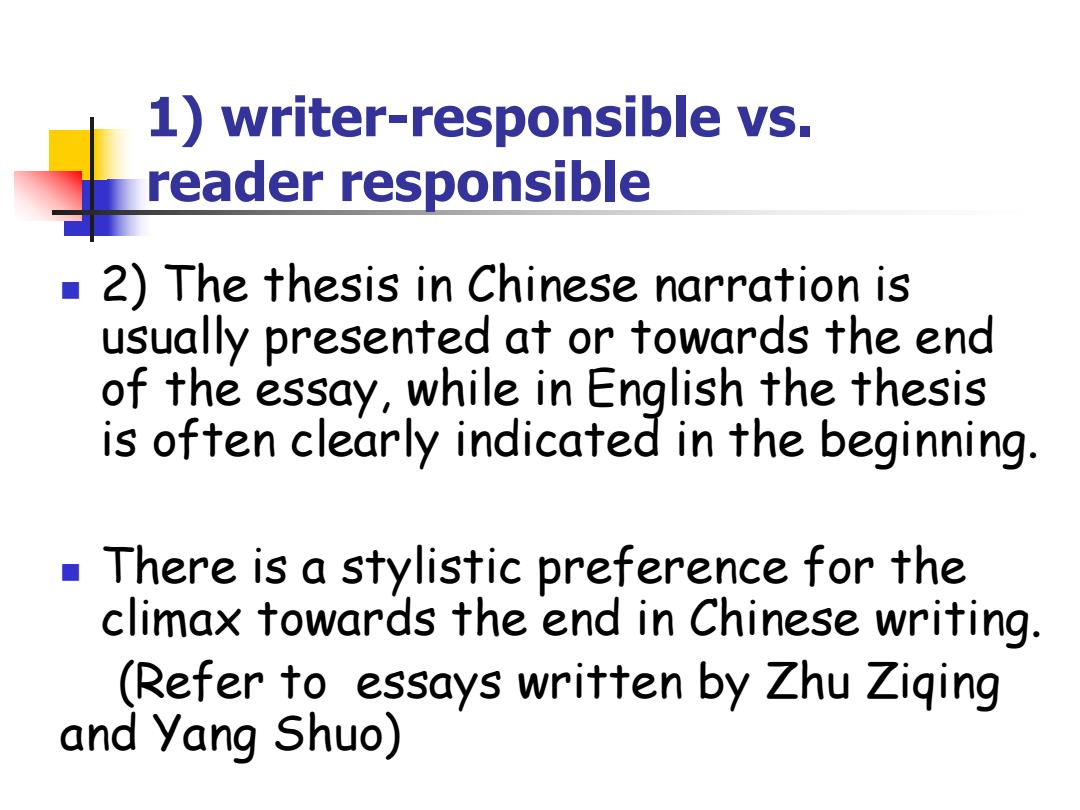
1)writer-responsible vs. reader responsible 2)The thesis in Chinese narration is usually presented at or towards the end of the essay,while in English the thesis is often clearly indicated in the beginning. There is a stylistic preference for the climax towards the end in Chinese writing (Refer to essays written by Zhu Ziqing and yang Shuo)
1) writer-responsible vs. reader responsible n 2) The thesis in Chinese narration is usually presented at or towards the end of the essay, while in English the thesis is often clearly indicated in the beginning. n There is a stylistic preference for the climax towards the end in Chinese writing. (Refer to essays written by Zhu Ziqing and Yang Shuo)
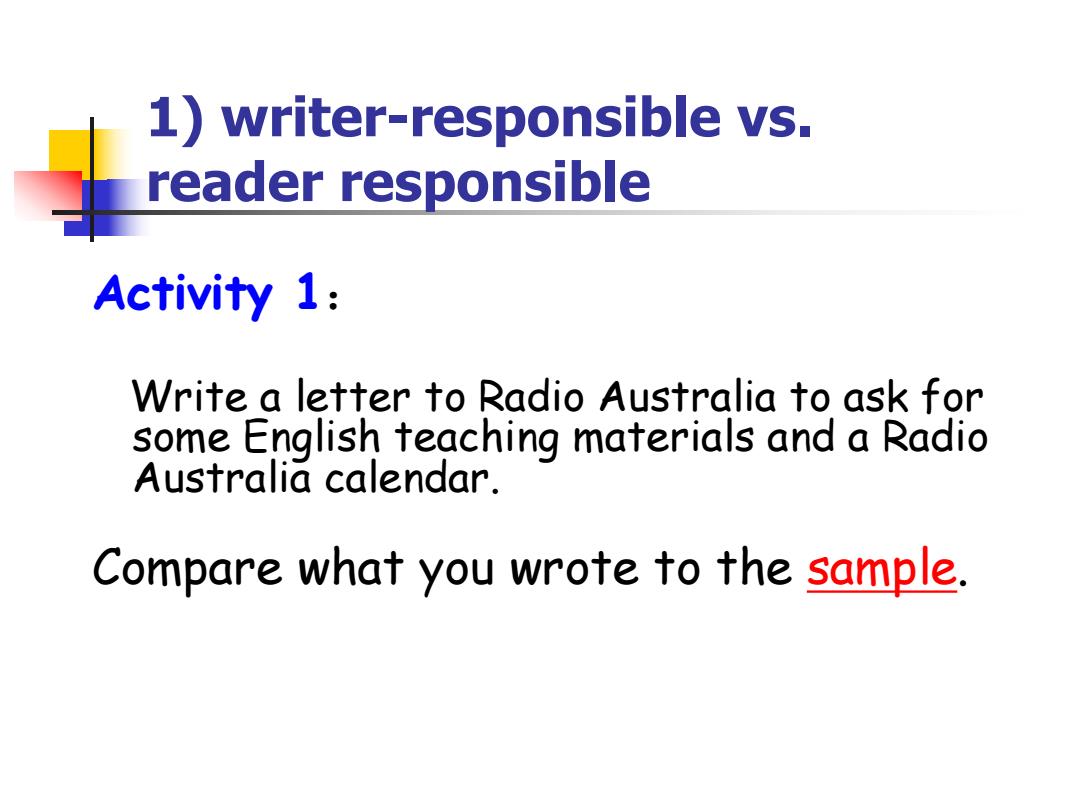
1)writer-responsible vs. reader responsible Activity 1: Write a letter to Radio Australia to ask for some English teaching materials and a Radio Australia calendar. Compare what you wrote to the sample
1) writer-responsible vs. reader responsible Activity 1: Write a letter to Radio Australia to ask for some English teaching materials and a Radio Australia calendar. Compare what you wrote to the sample
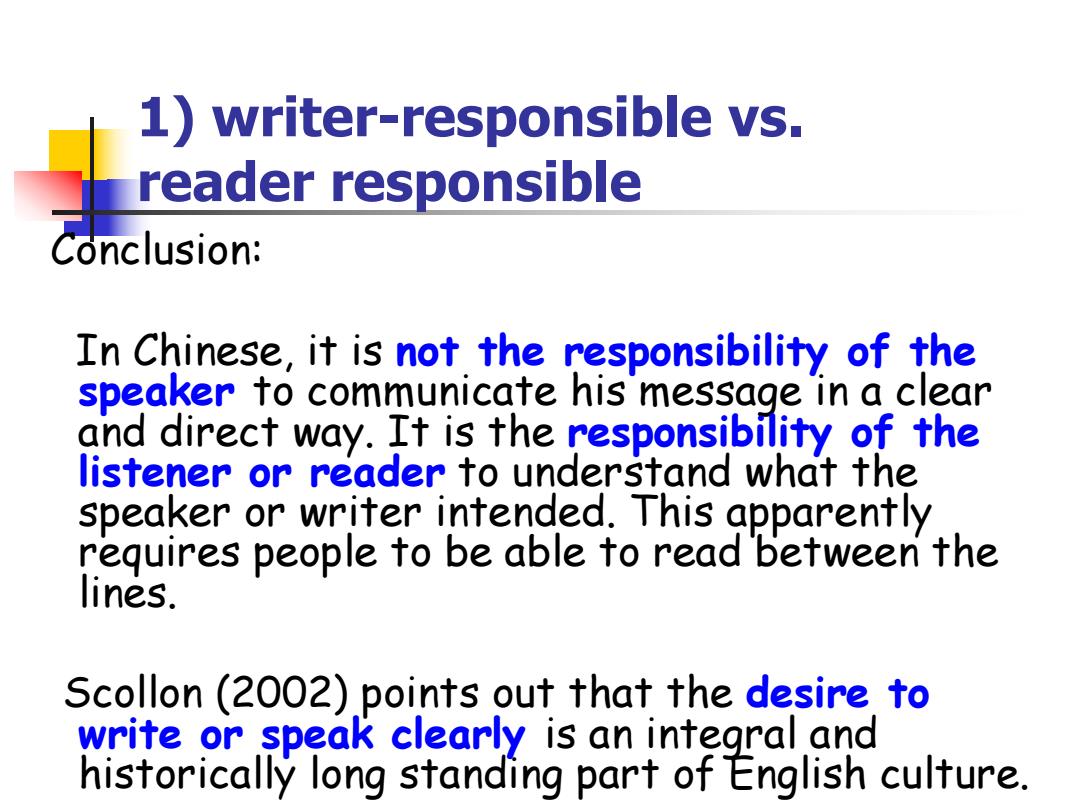
1 writer-responsible vs. reader responsible Conclusion: In Chinese,it is not the responsibility of the speaker to communicate his message in a clear and direct way.It is the responsibility of the listener or reader to understand what the speaker or writer intended.This apparently requires people to be able to read between the lines. Scollon(2002)points out that the desire to write or speak clearly is an integral and historically long standing part of English culture
1) writer-responsible vs. reader responsible Conclusion: In Chinese, it is not the responsibility of the speaker to communicate his message in a clear and direct way. It is the responsibility of the listener or reader to understand what the speaker or writer intended. This apparently requires people to be able to read between the lines. Scollon (2002) points out that the desire to write or speak clearly is an integral and historically long standing part of English culture